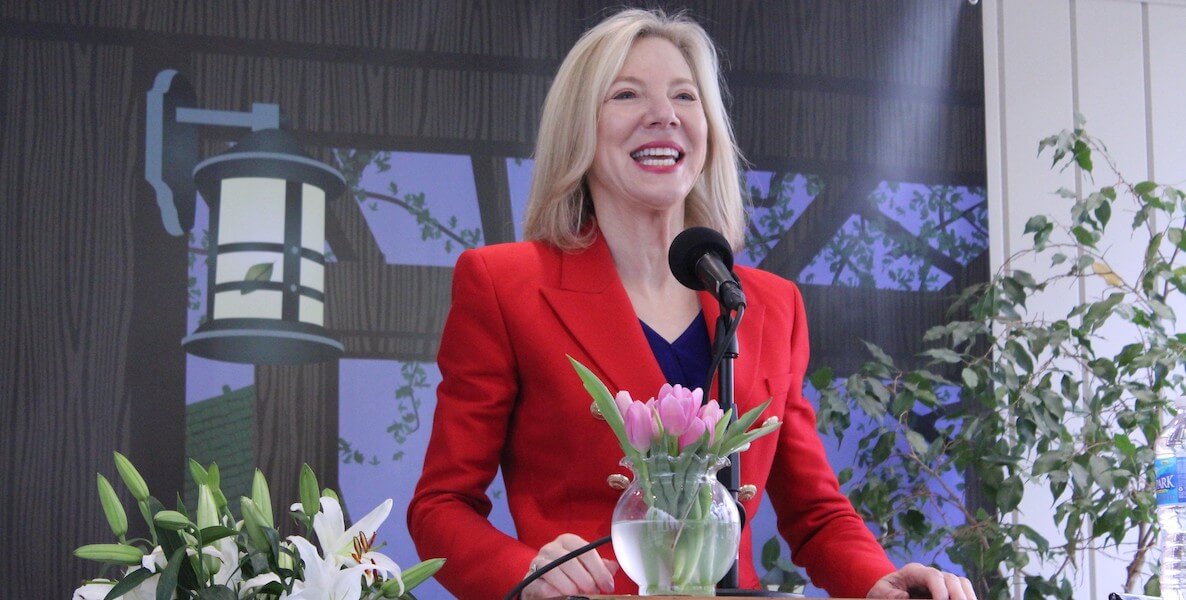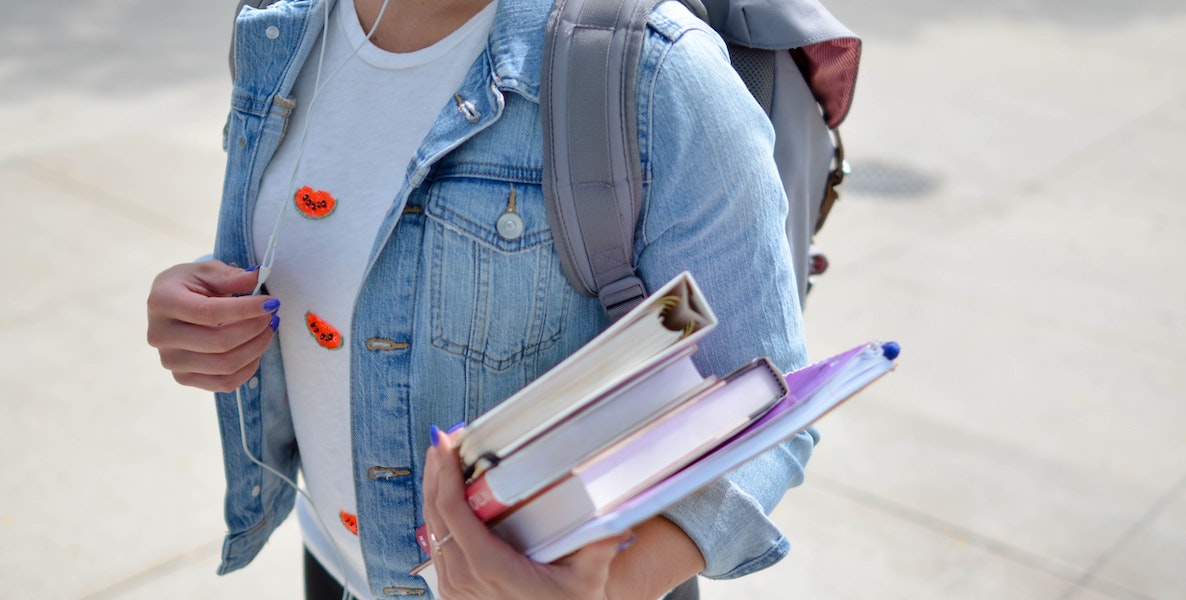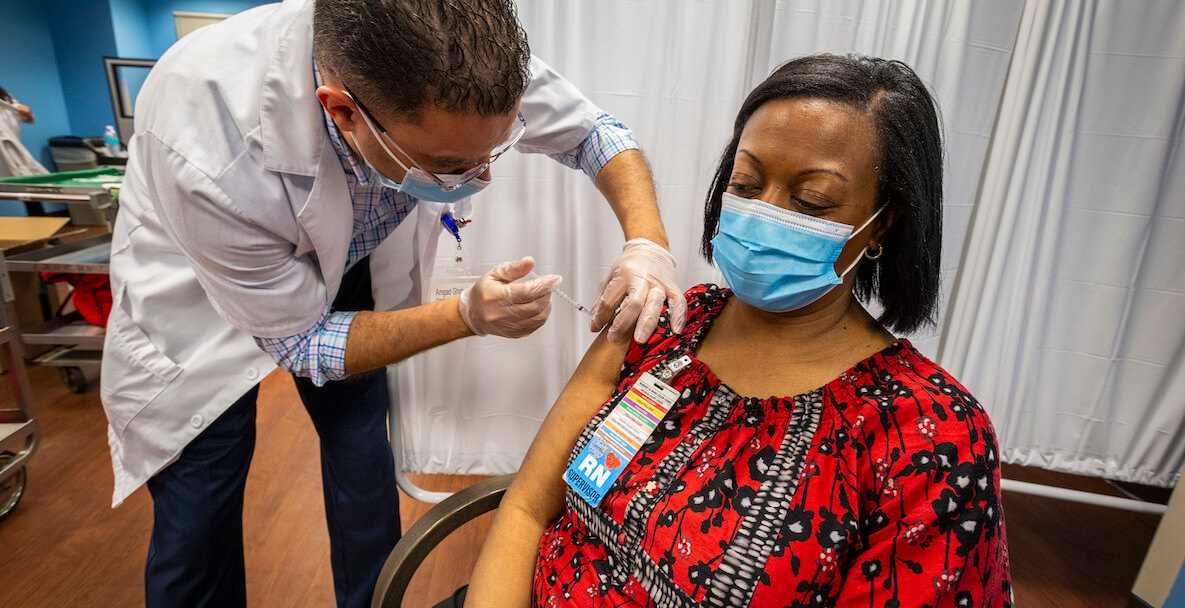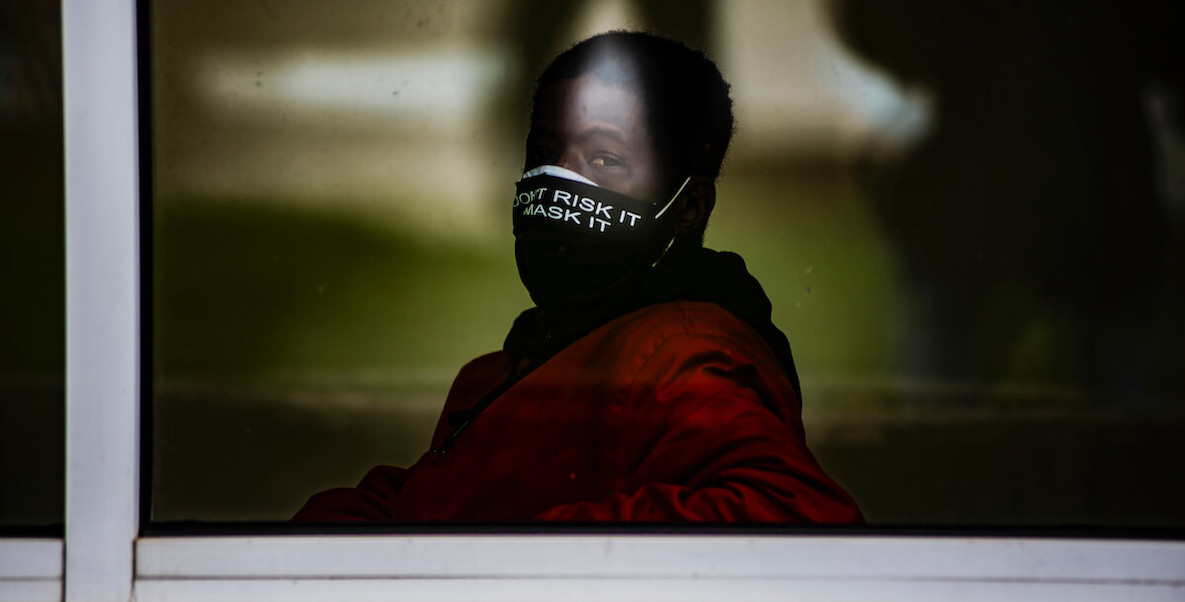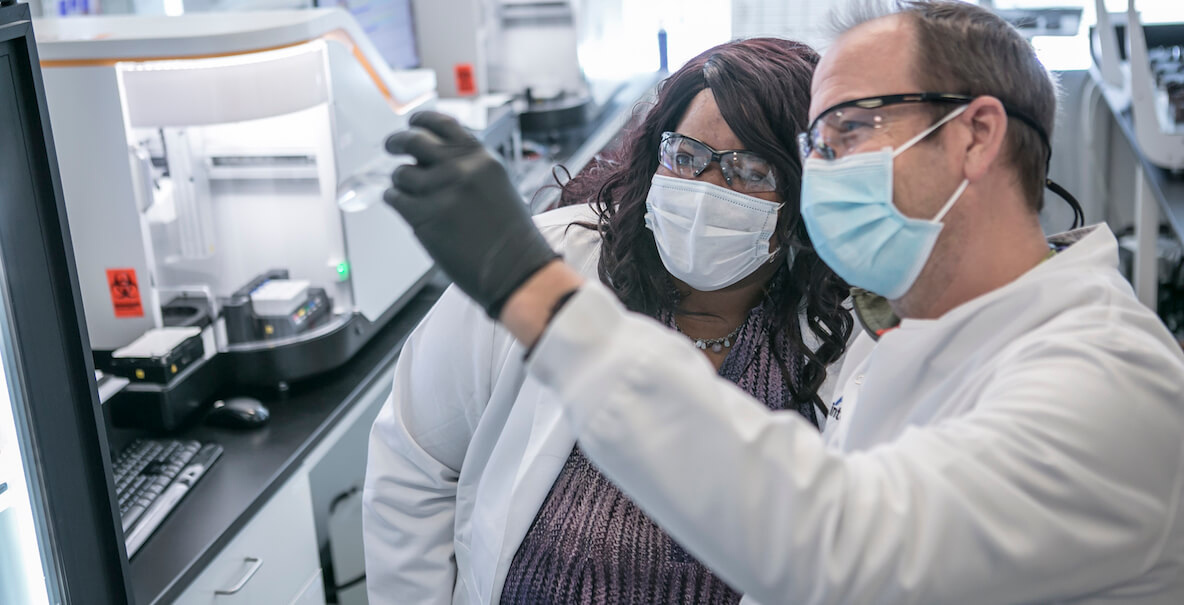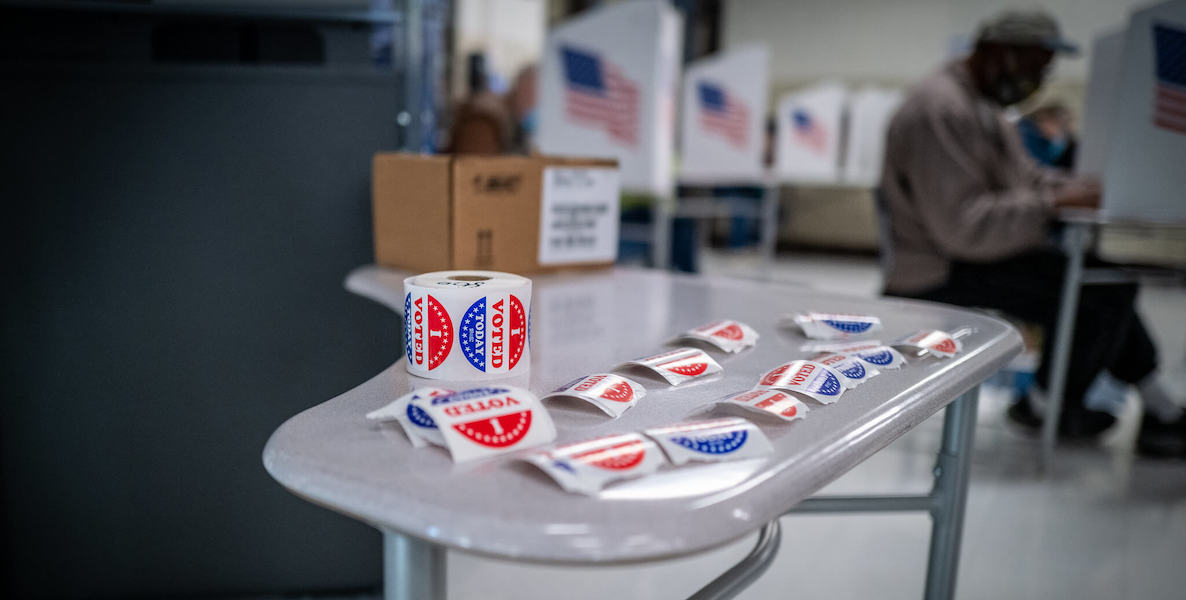At every level—federal, state, city—distribution of the Covid-19 vaccine has been a mess. It’s been particularly bad in Pennsylvania, which ranks 45th in comparison to other states in getting shots into people’s arms. Philadelphia was among only a few cities receiving a separate allotment of vaccine. That should have been an advantage. It wasn’t.
The pandemic has highlighted social injustices and health disparities. People of color have been hit hardest by the disease, and they have had less access to the vaccine. They have also been subject to misinformation, as well as historically-based fears of medical mistreatment.
There are heroes here: The Black Doctors Covid-19 Consortium has demonstrated medical expertise, planning, and authentic understanding of how to communicate with underserved communities. Volunteer-run sites like findashot.org, founded by Wharton executive MBA candidate David Newell, are trying to ease the search for appointments.
I owe a personal debt to the Facebook community PA Covid Vaccine Match Maker. Although I am solidly in the 1B category, I would not have received my first injection or an appointment for my second without the help of these Good Samaritans.
When I first heard that it was likely that Pfizer and Moderna would have vaccines approved by mid-December 2020, I thought that for sure I would have access to vaccinations some time in January. I registered with the state, city, and Jefferson Health, my medical provider. By the end of January, I was still in limbo.
My primary care physician at Jefferson said that he and other doctors were out of the distribution loop; the Jefferson website advised patience. My husband’s cardiologist told us that he had to fight for his own vaccination. The computer assigning appointments seemed to have a mind of its own like “Hal” in 2001—for those of you (many also in 1B) who remember that movie.
Blessings to Marissa, who told me about PA Covid Vaccine Match Maker, and to Meg, who secured appointments for me at Walgreen’s for both the first and second doses. Because of these angels of mercy, I will be ready in early April to attend the second birthday celebration for my twin grandbabies, Della and Marcus.
I tell this story as a backdrop to my suggestions for better preparation for the next challenges that are sure to come.
Education is the Answer to Preventing Future Vaccine Debacles
Where there is education, there is hope. Here are some things we can learn:
Understand history—the bad and the good
Calamities burst upon us, but they are embedded in history. It’s important for citizens to be aware of the past record of health disparities in this country. For hundreds of years people of color have had less access to the prevention and treatment of illness. Universities and colleges offer courses and programs with opportunities to work with research scholars exploring these issues. The more we know about these disparities, the more we will be prepared to close them.
Much has been written and should be read on the deliberate medical injustices done to the Black community. Working to remedy these wrongs should be the highest priority. Any massive inoculation endeavor must take this historic situation into account and develop effective ways to build trust.
American history also offers inspiration. Neighbors helping neighbors is a hallmark of the American tradition. In literature and in popular culture from Little House on the Prairie to Dolly Parton’s $1 million contribution to producing the Moderna vaccine, people transcend social barriers for a common goal.
Let’s recognize, study, and encourage that community spirit, rejecting the modern trend of “bowling alone,” and instead building on an iconic American tradition.
Study logistics and the supply chain in the context of critical thinking and communication
Early March in Alaska is the time for the Iditarod, which is more than an exciting sled dog race. It commemorates a triumph of logistics in 1925, when mushers sped from Nenana to Nome to deliver life-saving serum to combat diphtheria. They had to be fast or the life-saving anti-toxin would freeze and be ruined.
Today, when the situation is reversed, and we have to keep the Pfizer and Moderna vaccines deeply frozen, the study of logistics and the supply chain has greatly progressed. The University of Alaska Anchorage (UAA), where I served as chancellor, developed one of the first and best undergraduate and graduate programs in this discipline. The graduate program is available online, so students anywhere can sign up. Studying logistics and the supply chain is now available at many local and national universities.
Familiarity with these new fields could be useful as would course work in project management. But, frankly, studying any of these topics is insufficient without creative thinking, problem-solving ability, a commitment to planning, and excellent communication skills.
Learn how to use social media and the internet for good
In the third decade of the 21st century, social media and the internet are essential to effective communication from pre-school to longevity. PA Covid Vaccine Match Maker saved the day for me. But the internet is full of unreliable and sometimes fraudulent information. It’s imperative that we educate everyone on assessing the reliability of cyber sources. Having co-authored A Writer’s Resource and taken it through six editions, I’m doubling down in the seventh on social media and internet communication.
Help the general public understand science
STEM education—teaching science, technology, education, and math—to students going into those fields has proven remarkably successful. Case in point: scientists were able to produce highly effective Covid vaccines in record time.
Where we have not done so well is in teaching the public how to understand and use science. During this year of Covid we have seen science attacked as a conspiracy theory designed to weaken the economy. K-12 and general education college courses should arm students to fend off such assaults.
That means rethinking the fundamentals, rejecting memorization, and teaching the scientific method—what it means to move step-by-step through careful observations to new insights. We must educate non-scientists that the testing never stops. We reject old hypotheses as new evidence emerges. Students at all levels must grapple with the paradox of using the best available information while at the same time continuing to experiment and probe.
We can do a better job of teaching students to sort through “the fire hose of information,” as described in “Dear Pandemic.” The “nerdy girls”—scientists and health care workers volunteering to translate information to the public—are providing a tremendous educational service. Let’s teach more scientists to be nerdy girls, and let’s also find internship opportunities for more English majors to illuminate the history and practice of science.
By improving science education in the classroom and in the media, we can create a future where politicians will think twice before blatantly rejecting scientific evidence. Put those face masks back on, Texas and Mississippi!
Find and elect good leaders
Congress will soon consider the bipartisan “Educating for Democracy Act” (HR8295), which proposes increased investment in civics education. Watch for more information on this bill and support it. Democracy depends on the nation’s abilities to select leaders who will deal more effectively with challenges like the Covid crisis.
Leaders establish the principles that become a touchstone for decision-making, and those principles should be clearly and publicly articulated. Some examples that should have been established and published in the Covid vaccine situation:
- Decisions will be based on the most up-to-date scientific information, not on politics.
- We will develop a coordinated approach, appointing a vaccine czar, if necessary.
- The vaccine will first be available to front-line workers (including teachers) and to the most vulnerable determined by age and zip code.
- Wherever possible, we will use the existing medical infrastructure, fully involving hospitals, doctors, and pharmacists in the safe storage and distribution of the vaccine.
- The vaccine will be administered fairly without influence or favor.
- Communication will be unified and coordinated, reaching people through multiple means.
Clear principles lead to ethical decision-making. In Pennsylvania and Philadelphia, we have not found evidence of ethical lapses as we have in other states. It’s been reported, for example that Florida governor Ron DeSantis made a sweetheart deal for early vaccine distribution at a high-end community in the Florida keys.
Here, instead, it’s been massive incompetence and foolishness, like turning over 7,000 precious early doses to a bunch of college kids.
In addition to establishing principles, leaders make plans. In the vast majority of situations, these plans have to be developed without sufficient information. That’s the real test of leadership, making decisions based on imperfect data.
Starting a year ago leaders at the national, state, and city levels should have been forming plans for vaccine distribution. Even those who were skeptical about the quick availability of the vaccines should still have been developing multiple scenarios. Rather than blaming the absence of planning on the federal level (and there is much that is blame-worthy there), Pennsylvania and Philadelphia leaders should have been enumerating Plans A, B, C, D….Z.
Multiple plans would have led to readiness for the situation as it evolved. Instead, the state and the city seemed to be operating ad hoc. It all had a Judy Garland/Mickey Rooney quality: “Hey, let’s use cheap window fans to circulate the air in Philadelphia schools!”
Now that spring is coming, both principle and planning are looking better. President Biden tells us that all adults who wish to be vaccinated will be protected from Covid by the end of May. So let’s now shift our sights to the future.
Let’s educate future leaders to be ethical, strategic, resilient, flexible, and articulate. Curriculum designers and teachers should be intentional about leadership discussions, incorporating specific readings like Jim Collins’ classic Good to Great. History professors can assign probing questions about actions exemplified by leaders from diverse backgrounds: Alexander Hamilton, Eleanor Roosevelt, Martin Luther King Jr., Nancy Pelosi, Liz Cheney.
Colleges courses might include leadership strategies like the systematic innovation of Design Thinking (MIT) and the team-building features of the Gallup Organization’s Strength-finder.
Once we are on the other side of Covid, multiple challenges to health and safety will undoubtedly emerge. Covid-19 is just one form of the many-tentacled corona viruses. And can anyone spell climate change?
Health disparities continue. And after January 6, we see additional threats to the fundamental workings of democracy.
Let’s invest in education to promote better-prepared leaders for positive outcomes in a post-Covid world.
Elaine Maimon, PhD, has served for 24 years as chief executive officer at three public universities. Follow her on Twitter.



